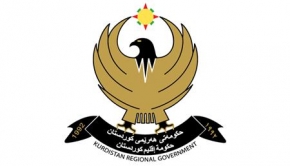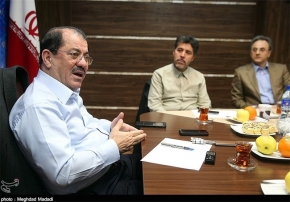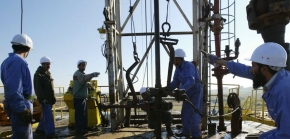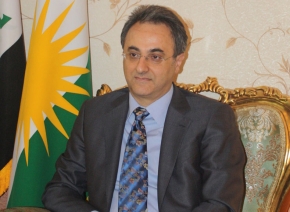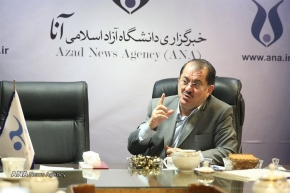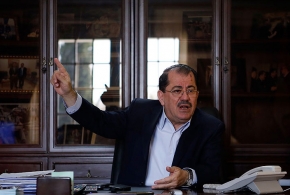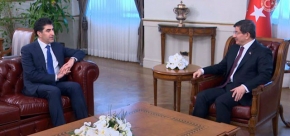Erbil, Kurdistan Region, Iraq (cabinet.gov.krd) - In a statement, the Presidency of the Kurdistan Region Council of Ministers, strongly condemned the bombattack on the Kurdistan Region oil pipeline by the Kurdistan Workers' Party, PKK, and considered it as an attack on the source of livelihood of the Kurdistan Region people.
Following is the text of the statement:
We condemn PKK’s attack on the source of living of the people of Kurdistan Region
The pipeline, which is used by the Kurdistan Region to export its oil, was bombed on 29 July 2015 in Sirnak province inside the Turkish border. PKK’s armed wing, People’s Protection Force, HPG, the following day officially claimed responsibility for the blast.
The Government and the people of Kurdistan Region currently pass through severe financial difficulties, due to withholding Kurdistan Region’s budget by the Federal Government of Iraq and the war against the Islamic State terrorist organisation, ISIS.
This oil pipeline constitutes the only principal source enabling the Kurdistan Regional Government, KRG, to pay people’s salary and helping the government and people of the Kurdistan Region to resist all the pressures and challenges the Region is currently facing. It is also the main source of funding Peshmerga Forces in the fight against ISIS, as well as the source of KRG assistance to more than 1.8 million refugees and internally displaced persons, who fled to the Kurdistan Region.
We strongly condemn this attack by the PKK, and consider it an irresponsible act against the people of the Kurdistan Region, the resistance of the Peshmerga forces and the refugees and displaced persons.
We consider that this attack has no other objective, except targeting and undermining Kurdistan Region’s economy and the living source of its citizens.
This is a condemnable act by the Kurdistan people and parties. We call on the PKK to stop the recurrence of such hostile acts against the people of Kurdistan Region.
The Kurdistan Regional Government seeks to use the pipeline of the Iraqi Oil Marketing Company, SOMO, in order to be able to continue exporting its oil.
Presidency of the Kurdistan Region Council of Ministers
31 July 2015
Regarding Turkey’s policies toward Iraq, Tasnim News Agency with the presence of three experts of Turkey and Iraq affairs Nazem Dabbagh, the representative of KRG in Tehran, Jegarxwin, the Deputy-representative of KRG in Iran along with Dr. Ja’far Haghpanah, the analyzer of regional affairs and scholar, held a meeting concerning Ankara’s approach toward Baghdad of which the underlying points follow:
Dr. Ja’far Haghpanah believes that until Justice and development party and Ahmad Davoud Oghlu personally came to power, toward the Middle East’s affairs Turkey did not take any roles but security. Since Turkey has always desired to join the west, the policy which was pursued at the period of Justice and Development party. In Iraq, after Americans’ departure, Turkey tried to lead the Sunni groups and manage those fighting against central government. Haghpanah added that Turkey was opposed America’s strike to Iraq which was appreciated by some Saddam’s opponents. Therefore, the Middle East has reached peak of its critical point; and if the regional countries do not cooperate with each other, all will expose to this crisis.

To answer Haghpanah’s phrases, Nazem Dabbagh stated that even though Turkey wanted to join Europe, he failed to achieve this aim. Thus after America’s attack to Iraq made an attempt to increase its influence in Sunnis in Iraq. Despite of its advantages in Iraq changes, Turkey has begun to fall. When Baghdad government was established, Ankara tried to strengthen the Sunnis and Turkmens in Iraq and Kurdistan as opposition of Bafgdad. Dabbagh said: I believe that through economic approaches Turkey is about to control Kurdistan; although he could attract Saddam’s attention, and in order to create a security border entered the north of the country, which fortunately with Kurdistan’s rise we could somewhat control Turkey’s authority obtained after Saddam’s fall. They have involved in economy and oil of the north of the country, which is similar to double-edged blade. Concerning oil agreements of KRG with Turkey without the affirmation of central government Dabbagh said: when Baghdad treated with Kurds as before, we had no choice but to act according our benefits. Dabbagh stated that Iraq Kurds disagree with the presence of wearing black ISIS. He continued: we desire Federal Iraq in which everyone is obedient to the Constitution. Haghpanah added that the political position in the Middle East are heading to stability, thus Kurds’ position will be stabilized. So Turkey has to accept the stabilized position. Therefore, Turkey considers Kurdistan region as a tool and the justice and development party do not deem any identity for Kurds. However structurally it regards Copenhagen regulations to join European Union. He also said: I agree with Me. Dabbagh that Turkey has no more capacity to play with the regional affairs. For it confronts serious interior and exterior problems. Due to its special consideration toward ISIS, it is suspicioned by KRG. The center of the next discussions will be assigned to the future of Erbil-Ankara. Dr. Muhammad Seddigh Ahmad (Jegarxwin), in a response to this question said: KRG has a fairly independent existence accepted by regional and international countries. He continued that Erbil-Ankara relations are divided in political, social and economic fields. According to Turkey deeming the economic opportunities available in Kurdistan Region, economic relations have been developed, naturally these relations are so beneficial for Ankara, however in the fields of economy and security is growing more sensible. Turkeys concerns of managing the crisis of Kurds has risen, and in the direction of taking effective steps in order to accelerate its joining to Europe Union, Ankara has had to choose a new look and approaches to solve Kurds’ concern. Simultaneously these changes in Turkey and Iraq flexible policies have been taken toward Kurdistan.

These were all reasons that accelerate to develop multilateral relations, whereas in spite of new political atmosphere it seemed that Turkey has not achieved its desirable goals. Somewhere in his speeches concerning Turkey positions toward ISIS he said: regarding the new conditions Ankara as we expected did not serve any facilities to Kurdistan to dispatch Pishmergah to help Kurdish fighters to defend Kobani. Jegarxwin tried to study that policy taken. In his view, all regional, interior, international pressures caused turkey to try to take the most advantage of the present condition with the least risk. He added: as long as the both sides aim to remove problems through talking and for both nations’ happiness, to develop the Turkey-Iraq relations never disagree KRG’s benefits; and we are interested in relations to be strengthened. Dabbagh altogether agree with Jegarxwin and said: I insist that the condition of Kurds in the Middle East is positive. According to the constitution of Iraq we follow to solve our concern. New conditions have occurred in the region, Kurds has turned to the balance weight.

Haghpanah put a detailed discussion concerning the complicate position of identity in Iraq and described interior difference of Iraq based on this. To complete this, Dabbagh said the warranty of Kurds’ and Shias’ rights are two things: first Kurd-Kurd, Shia-Shia, and after that Shia-Kurd unity. According to this, Jegarxwin stated; I believe in moderate Sunni-Kurd-Shia unity.
Erbil, Kurdistan Region, Iraq (cabinet.gov.krd/mnr.gov.krd) - Kurdistan Regional Government, KRG, has increased its direct oil sale in June due to the "significant debt backlog arising from the budget cuts of 2014 imposed by the federal government, and the need to pay down debts accumulated in 2014 from pre-payments for oil sales”, KRG Ministry of Natural Resources said in its June Export Report.
Due to these difficulties, the KRG Ministry of Natural Resources has been obliged to increase its independent oil sale, the report said.
According to the report, KRG tanks in Ceyhan port in Turkey received 17,130,639 barrels of crude oil (an average of 571,021 barrels per day, bpd) in June, through the Kurdistan pipeline network to the port of Ceyhan in Turkey.
Fields operated by the KRG contributed 12,740,711 barrels (an average of 424,690 bpd), while fields operated by the North Oil Company, NOC, contributed 4,389,928 barrels (an average of 146,331 bpd).
In June, KRG supplied 4,493,334 barrels (an average of 149,778 bpd) to Iraq’s State Oil Marketing Company, SOMO, in Ceyhan.
According to the KRG Ministry of Natural Resources Report, the KRG has indepemdently sold 11,893,231 barrels in June.
Following the budget cut imposed by Bagdad early 2014, KRG largely relied on international and local loans in securing the Region’s civil servants salaries and public services spendings.
Kurdistan Region financial difficulties continued in 2015, as the Iraqi Federal Government has, to date, failed to abide by its agreement with KRG reached last December on oil export and budgetary issues.
According to the December agreement, KRG is committed to export 550,000 bpd in return for a budget entitlement close to one billion US dollars per month to be paid by the federal government. The agreement was approved within the framework of the Iraqi Federal Budget Law for 2015.
KRG Ministry of Natural Resources June Report emphasises that, “In 2015, the difficult economic situation facing the Region has been exacerbated by the partial payments made to the KRG by the Federal Government.”
Although, KRG independent oil sales has increased, the report stresses that KRG remains committed to the 2015 Federal Budget Law in its entirety.
“[The KRG] will continue to work with its counterparts in Baghdad to reach a resolution on all the outstanding issues of oil and gas as described in the joint statement of June 17, 2015 by the KRG’s Regional Council for Oil and Gas Affairs and the five political parties in the Kurdistan Regional Government”, the report said.
In a statement issued following a joint meeting on June 17, between KRG Regional Council for Oil and Gas and the five political parties in Kurdistan Regional Government, it was stressed that, “If the Federal Government does not abide by the Federal Budget Law, the KRG will be obliged to pursue other legal solutions to settle Kurdistan Region’s financial difficulties and provide the Region’s people with security and other basic necessities in light of Law No 5 of 2013 of the Kurdistan Parliament.”
In a talk with Kurd press, Jegarkhwein dealt with reviewing different concerns including economic political problems and their causes in Kurdistan Region and Iraq, the cause of Iran’s weak presence in Kurdistan Region’s market as compared to Turkey, the political-historical relations between Iran and Kurdistan Region of Iraq and the necessity of improving the cultural-scientific relations between them. A short description follows:
In his view the crises compose of a collection of threats and chances. He believes that presently two crises, ISIS and financial concerns, are the problems Kurdistan Region of Iraq. Concerning fighting terrorism of quasi-government of ISIS, Pishmerga forces managed to courageously fire the terrorists from almost all occupied areas, and now in all battlefields Pishmergas has taken the control. Relating to financial crisis I do insist that the cause of this is undoubtedly the former Iraq cabinet, of course, terrorists’ strike made it worse. He continued to say that one of the roots of current problems of Iraq is the way it formed as a country. Iraq without deeming the identical joints of tribes was formed by great powers. That was why a national identity has never been formed in Iraq. Furthermore, mentioning the concern of physical existence of Iraq he believes that all social political opportunities have to be used in order to resolve this problem.
In a response to a question, Jegarkhwein said that the oil transition pipeline of the Region passes through Turkey. However, as Qassem Rostami, the chief of Economic Improvement Centre of Iran-Iraq and senior consultant of first vice-president of Islamic Republic of Iran traveled Erbil, some agreements were reached of which one relates to energy matter. In addition he continued that the officials of the Region have a balance look toward the relations with neighbors.
The deputy-representative of KRG of Iraq in Iran believes that Iran has entered good and beneficial market of the Region late, thus it has missed many chances. In his view this condition has appeared that between both sides there are numerous historical, cultural, social joints.
Relating to the strategy of the Region concerning gaining the Independence from Iraq, Jegarkhwein refers to a phrase of the head of the Region saying that this process (the Independence) is still going, although fighting ISIS has postponed this. This is meant that we cannot relinquish, however; we want to accomplish that without force, fighting and bleeding, with our unity, research, wisdom and talking with Baghdad.
About sayings put concerning better relation of Kurdistan Democratic Party with Turkey and Patriotic Union with Iran he said he would not accept this in this way; since the relations among Kurdistan Region, Iran, Iraq and other countries are not in the form of Party but formal and almost diplomatic. The foreign relations mechanisms of the Region are not bound to any party and operate completely nationally.
Relating to Iran support from the Region against ISIS Jegarkhwein said that Iran is an important and great neighbor. The leaders of Kurdistan Region as the representative of their nation are always appreciating Iran generous supports and helps. It can be said that after Islamic republic triumph, our relation with Iran have been warm and close all times but a short time long ago. He continued to mention a few aids of Iran to Kurdistan Region of Iraq.
The deputy-representative of KRG of Iraq in Iran in a response to the last question relating to current obstacles to improve the relations between Iran and the Region answered clearly and elaborately. In general in his view matters like Iran-phobia for some Kurds in the Region and Kurd-phobia for some Iranian officials, limited Iranian authorities’ welcoming to improve the relations with Kurdistan Region, preventing scholar and culture cooperation on the behalf of Iranian officials, not caring to the public diplomacy by both sides to improve the relations have made obstacles. Finally he put an end to his interview by say this that: deep and the strategic relations in the fields of culture, economic and sociology can cause trustful perspective of relations in all cases.
Mustafa Dehghan and Maryam Yousefi from Ana news agency had a comprehensive talk with Mr. Nazem Dabbagh and asked him many questions about different aspects of Iraq and Kurdistan Region, as well as Iran’s and KRG relations, of which the outlines as followed:
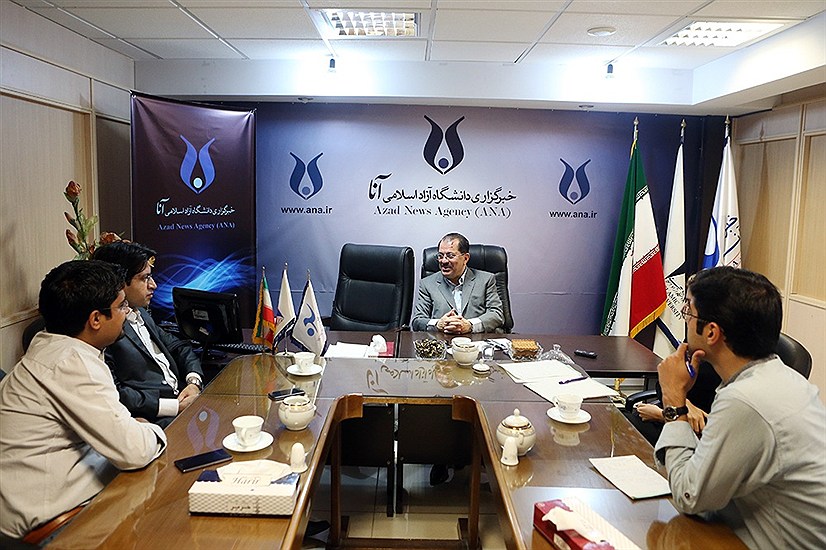
Relating the warnings to Mr. Maliki about impending danger Nazem Dabbagh was asked. He replied that our intelligence agency found out moves on behalf of ISIS but he discarded. Our warnings concerned with the unity and cooperation of some Sunnis, the members of the army, Tikrit people, Mosul and Samara with ISIS. In the answer to a question about the meeting KRG heads with ISIS members he said there was no such meeting. Since KRG cannot both to warn central government and to cooperate with ISIS. While at that time some Sunnis groups presented in Kurdistan and KRG was in touch with them. After a while some of them joined ISIS. In his view ISIS was not created both by us or central government, it was formed in the region 100 years ago. He continued that ISIS would soon be vanished. He added that ISIS has occupied Mosul, I predicted ISIS first attack Baghdad and then the Region all. He clarified that the differences between KRG and central government was effective in the Region’s function relating ISIS. Dabbagh added when Haydar-Al-Ebadi came to power as if there has been a new though dominating central government, thus it has provided the possible of more of cooperation of both sides.
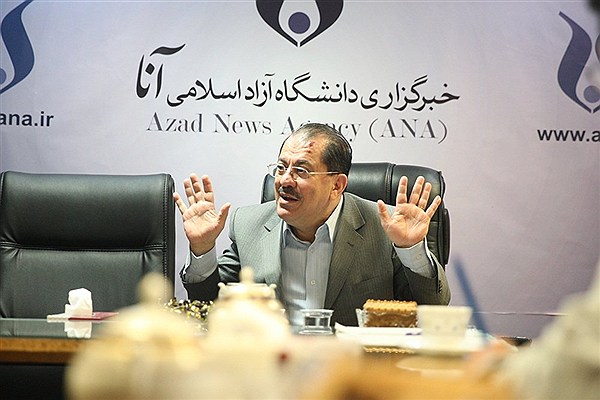
The other part of the talk was about the independence of the Region of Iraq. Dabbagh said the Region has always been trying to move according to the constitution, while it has shown his tendency to be independence. It is meant the Region is looking for independence but it will not do it without Central government’s agreement. He said in his opinion Maliki’s coming to power and his resigning was common view of Iran-America. Similarly he added the achievement of agreement will help to increase the security in Syria, Iraq and Lebanon.
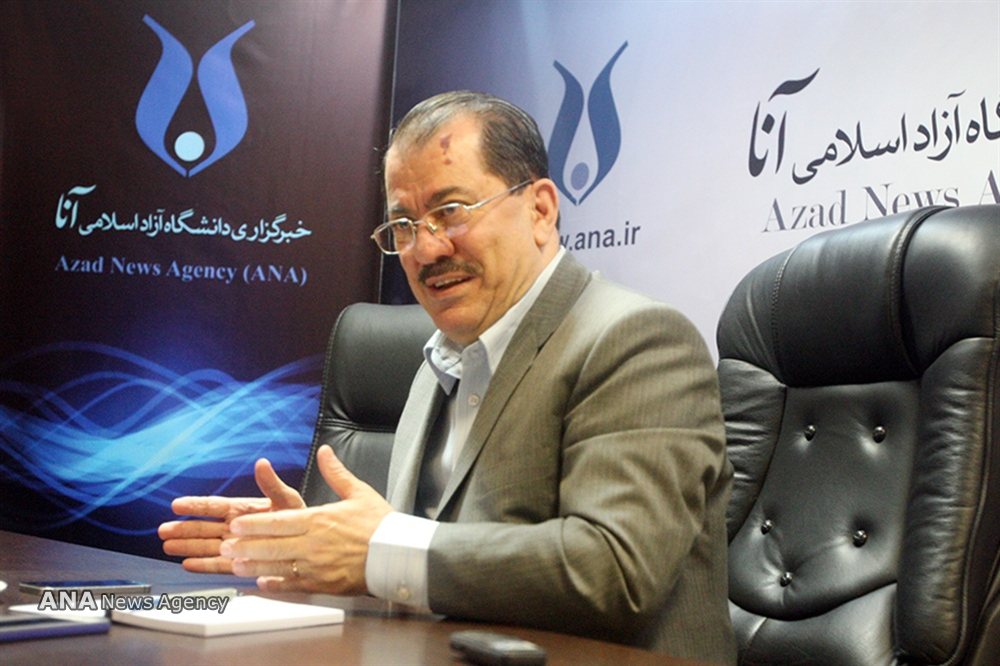
Concerning the possibility of the Region and Israel’s cooperation he said the region has four borders with four countries, Iraq, Iran, Syria and Turkey. Presently we have relationship with Iran, and in the current conditions of the region we cannot think of political relation with Israel in the future, nor are we willing to make Arabian and Muslim countries enemy with us. He said although Jewish live in the Region, there are no Israelis there.
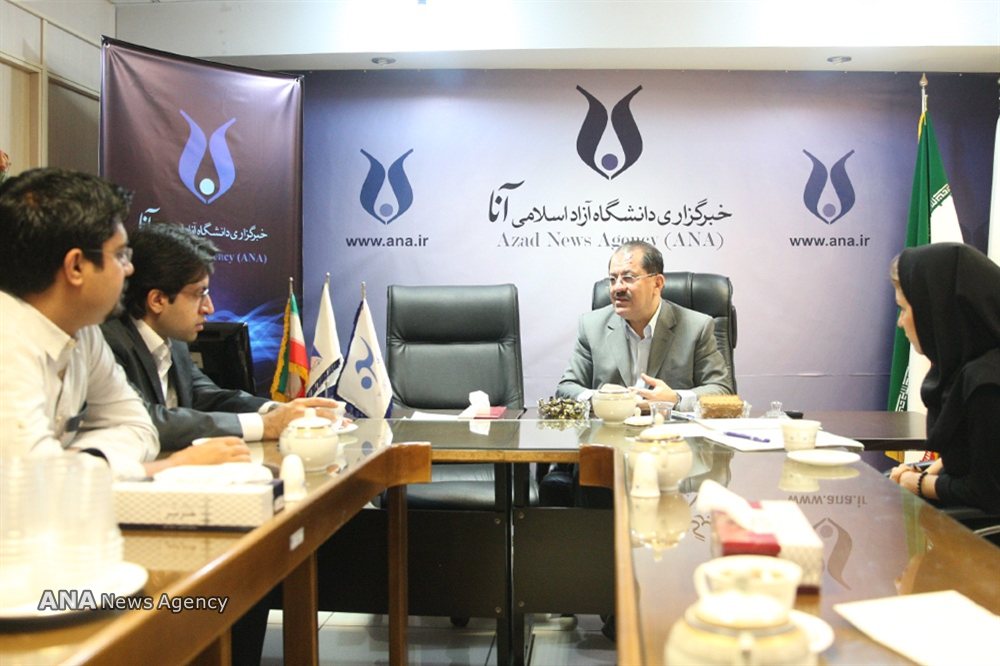
Another part of talks was about Kubaney. Dabbagh said that Kurds of Kubaney tend to P.K.K, thus Turkish government helped them late. But KRG sent 150 troops there three times. He continued the reconstruction of Kubaney has not started yet but programming to reconstruct it is being carried out.
When Saddam ruling Iraq Ba’athists were on power. There were thoughts of Ba’ath party growing and in Syria also Salafist and Takfirist got united as a special organization; those thoughts of Ba’ath dominated this unity and caused a singularity between terrorists and Syria and called themselves “Islamic State of Iraq and Sham”, namely, ISIS. The representative of Kurdistan Regional Government of Iraq, describing the reasons and roots of the formation of ISIS terrorists group, considered the coalition against terrorists as a pretext to reenter Iraq. He believes that the USA has experienced three strategies to enter Iraq: the first experience was Persian Gulf War against Saddam, the second was getting out the Nuri Al-Maliki from Iraq and the third was to attack ISIS.
Nazem Omar Dabbagh the representative of KRG of Iraq in Iran in talk with ILNA News Agency reporter, about the hidden goals of ISIS to appear said: ISIS is not something to emerge suddenly but there were factors to support ISIS and there was an atmosphere in which it could grow. In Syria and Iraq this appropriate atmosphere was prepared. Emphasizing that in the history such concerns are obviously mentioned he added as Justice and Development party coming to power in Turkey, it has formed especial closeness between this country with Qatar and Saudi Arabia.
Relating bombing ISIS positions by America he said ILNA: it is benefit to America to use air raid rather than disembarking his forces to reduce expenditures since in his view. America public reflections cannot accept their soldiers to be killed in Iraq.
Dabbagh shortened Turkey’s policy change in two cases. The first is to take advantage by letting medicines and altruism aids pass from his country and the second was that through being a member of NATO and accepting some commitments and being asked by the members to make his role against ISIS clear he had to change his policy. In addition he believes that some countries allied with America in fight against ISIS also support this group have vague role. Stating that the coalition and allying to uproot ISIS in the region have to be serious Dabbagh said: to vanish ISIS in the region this group must be destroyed to the core like to cut the financial and human resources and stop supporting it.
Erbil, Kurdistan Region, Iraq (gov.krd) - Kurdistan Region Prime Minister, Nechirvan Barzani, yesterday received members of the Turkish Parliament, Leyla Zana and Sırrı Süreyya Onder.
Ms Zana and Mr Onder briefed the Prime Minister about their recent visit to Imrali Island where they met the imprisoned leader of the Kurdistan Workers Party, PKK, Abdullah Ocalan.
They said, Mr Ocalan is full aware of the attempts undertaken by Prime Minister Barzani in supporting the peace process in Turkey and finding a settlement for the Kurdish issue in this country, for which, they said, he expressed his gratitude.
The two sides discussed the latest developments in the peace process, highlighting the importance of preventing the process to be hampered by minor problems.
Prime Minister Barzani expressed his readiness to continue supporting the peace process and settlement of the Kurdish issue in Turkey and carrying out any task that is required in order to help achieve it.
They also discussed the latest developments in the war against terrorism and the efforts exerted to convene a pan-Kurdish conference, highlighting the importance of unity among the Kurdistan parties in facing terrorism. In this regard the Prime Minister expressed his thanks and appreciation for of the various Kurdish groups which fight terrorism.
Ankara, Turkey, (gov.krd) - Turkey’s Prime Minister Ahmet Davutoğlu on Thursday received a delegation from the Kurdistan Regional Government, headed by Prime Minister Nechirvan Barzani.
The two sides discussed the relations between Kurdistan Region and Turkey, stressing the need to further develop and strengthen bilateral relations, particularly in the fields of energy and trade.
The war against the so called Islamic State terrorist organisation, known as ISIS, the role of Kurdistan Region Peshmerga Forces and relations between Erbil and Baghdad, were also discussed in the meeting.
Prime Minister Barzani was accompanied by KRG Deputy Prime Minister, Qubad Talabani, Minister of Natural Resources, Ashti Hawrami, Minister of Planning, Ali Sindi and Minister of Finance and Economy, Rebaz Muhammad.
Latest News
- President Erdoğan reaffirms Türkiye’s continued support for Iraq and the Kurdistan Region
- President Nechirvan Barzani’s message on the 126th anniversary of Kurdish journalism
- President Nechirvan Barzani at the Sulaimani Forum: The country must bring us all together
- President Nechirvan Barzani meets with European Union Ambassador
- President Nechirvan Barzani receives French Ambassador
- President Nechirvan Barzani visits Iranian Consulate General to pay respects to victims of Kerman terrorist attack
- President Nechirvan Barzani receives outgoing French Ambassador
- President Nechirvan Barzani condemns terrorist bombings in Iran
- President Nechirvan Barzani meets with US Deputy Secretary of State
- President Nechirvan Barzani’s New Year Address
- KRG Prime Minister Meets with US Deputy Secretary of State
- KRG Prime Minister Engages in Key Talks with UNAMI Chief
- KRG Prime Minister Hosts Diplomats from Iraq and Kurdistan Region
- KRG Prime Minister Meets with the UN’s Secretary-General at COP28
- President Nechirvan Barzani meets with Turkish Ambassador
- KRG Prime Minister Welcomes UK Military Delegation
- President Nechirvan Barzani meets with UK Chief of the Defense Staff’s Senior Middle East Advisor
- KRG Prime Minister Discusses Regional Issues and Domestic Policies in Special Panel
- KRG Prime Minister Meets with Former British Prime Minister
- MEPS Forum in Duhok Highlights Climate Change Among Key Global Challenges
- KRG Prime Minister Meets with United Nations Delegation
- President Nechirvan Barzani and French Ambassador discuss the situation in Iraq and the region
- President Nechirvan Barzani meets with Head of the Independent Strategic Review of UNAMI
- KRG Prime Minister Inaugurates 5th International Trade Fair for Industry and Construction
- KRG Prime Minister Meets Qatar's Consul General
- President Nechirvan Barzani meets with Iraq’s Oil Minister
- KRG Prime Minister Welcomes Cardinal Sako of the Chaldean Catholic Church
- KRG Prime Minister Meets with Iraq's Energy Officials
- KRG Prime Minister Meets with British Ambassador
- President Nechirvan Barzani meets with UK Ambassador to Iraq

